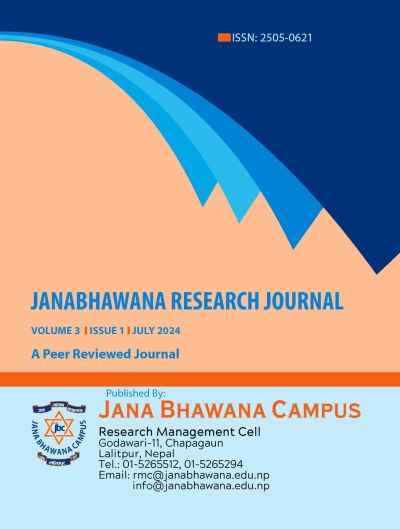Continuation of Learning During COVID-19 Situation in Nepal
DOI:
https://doi.org/10.3126/jrj.v3i1.68393Keywords:
teacher, school, COVID, ICTAbstract
This study explored the obstacles and ways of continuation for learning faced by school teachers during and after the COVID-19 situation. The quantitative cross-sectional survey research design was adopted. All the school teachers of Nepal were the population for this study and the sample size was 226. The online survey method was adopted for the data collection tools. A set of closed and open-ended questionnaires were distributed to respondents and data was collected using Google Forms. The study seeks the relationship between the independent variables (age, experience of teaching, school location, teacher’s residence, access to the internet, access to digital devices, knowledge about ICTs interest in online teaching) and dependent variables (continuation of online teaching). It was found that the community teaching and homework/ assignment methods were applicable to the rural areas. Continuing online teaching would be inconvenient for the students who had no internet access. According to the teacher's response, it was found that about 90% of students had no access to the internet. Although online teaching was suitable for the COVID-19 situation, it was biased for the maximum number of students. The teacher's interest and the obstacles in the online class and continuation of learning are significantly co-related (0.003 and 0.000 respectively). There was no significant difference between male and female teachers in continuation for online learning but a greater percentage of males are involved in online classes than females. The experienced teachers equally continued their learning of digital skills. There was a problem with the internet/ wifi/ 3G/ 4G network in rural areas. Teacher adjusted their teaching and learning activities even if they had no access to a laptop. The study concludes that teachers are ready for online classes and they regularly update their digital skills with changing times but digital divides created a serious problem with conducting online classes. So, the Government of Nepal should pay attention to teacher training, integration of digital skills in the curriculum, and proper allocation of budget for infrastructure development.
Downloads
Downloads
Published
How to Cite
Issue
Section
License

This work is licensed under a Creative Commons Attribution-NonCommercial 4.0 International License.
CC BY-NC: This license allows re-users to distribute, remix, adapt, and build upon the material in any medium or format for non-commercial purposes only, and only so long as attribution is given to the creator.




